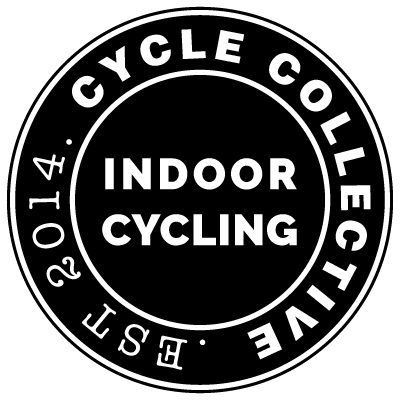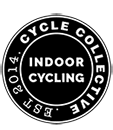
26 Jul Electrolytes 101: What Spin Class Enthusiasts Need to Know
When you pedal through an intense spin class, drenched in sweat and feeling the burn, your body does more than burn calories and tone muscles.
You’re also losing essential minerals known as electrolytes. These little powerhouses are vital for optimal body function and performance, especially during and after an indoor cycling class.
What are electrolytes?
Electrolytes are minerals that carry an electric charge and are crucial for various bodily functions. The key electrolytes include
- Sodium
- Potassium
- Magnesium
- Calcium
- Chloride
- Bicarbonate, and
- Phosphate
These elements help regulate muscle function, nerve signalling, hydration, and the pH levels in your blood. While spinning and sweating, you lose water and vital minerals. Replacing them before, during, and after a spin class is essential to maintain peak performance and overall health.
Why do spin class enthusiasts need electrolytes?
Understanding electrolytes can help one become a better spin practitioner and inspire spin enthusiasts to adopt a consistent electrolyte and hydration protocol.
Muscle function
Electrolytes, particularly calcium, sodium, and potassium, are critical for muscle contraction and relaxation. Without them, you could experience cramps or muscle weakness, reducing the effectiveness of your workout.
Hydration
Electrolytes help balance the water in your body’s cells. Sodium, for example, plays a pivotal role in maintaining fluid balance, which is crucial during a sweaty spin session.
Nerve function
Electrolytes facilitate nerve signalling. They ensure that messages between your brain and muscles are transmitted efficiently so you can keep up with the pace and intensity of your indoor cycling class.
Preventing fatigue
A lack of electrolytes can lead to fatigue, dizziness, and confusion. Keeping your electrolyte levels in check can help you power through your spin class and break through plateaus.
Signs you might be low on electrolytes
During and after a spin class, watch out for signs indicating you need to replenish your electrolytes:
- Muscle cramps: Sudden, involuntary muscle spasms can indicate low calcium, potassium, or magnesium levels.
- Fatigue: Feeling unusually tired or weak can indicate an electrolyte imbalance.
- Dizziness: Light-headedness or dizziness, especially after intense exercise, can signal low sodium levels.
- Nausea or headaches: These can be symptoms of dehydration and electrolyte depletion.
If you experience any of these symptoms while taking a spin class, it is vital to stop and hydrate immediately.
How to Replenish Electrolytes
Knowing how to replenish your electrolytes is key to remembering to be consistent with your electrolyte and hydration protocols.
Electrolyte-rich foods
Incorporate foods that are high in electrolytes into your diet. Bananas (potassium), spinach (magnesium), spinach (calcium), and nuts (magnesium) are excellent choices.
Sports drinks
Many sports drinks are formulated to replenish electrolytes lost during exercise. Look for options that contain sodium, potassium, magnesium, and other essential minerals. Be mindful of the drink’s sugar content.
Electrolyte tablets and powders
These are convenient options to add to your water bottle for a quick electrolyte boost, but check for excessive amounts of sodium.
Coconut water
Coconut water is a great natural alternative to traditional sports drinks. It’s naturally rich in potassium, magnesium, sodium, calcium and phosphorus and is low in calories and sugar.
Hydration strategies
Drinking water before, during, and after your indoor cycling class is crucial. Adding a pinch of quality mineral salt to your water can help replenish sodium.
Timing your electrolyte intake
To maximise the benefits of your spin class, timing is everything when it comes to electrolyte intake:
- Before class: About 30 minutes before your spin class, have a small snack that includes some electrolytes, like a banana or a handful of nuts. This preps your body for the workout ahead.
- During class: Sip on an electrolyte-infused drink throughout your session. This helps replace what you lose as you sweat and stabilises your energy levels. It is better to sip regularly than to imbibe large quantities at once.
- After class: After a workout, it’s important to replenish both water and electrolytes. Have a recovery snack or drink within 30 minutes of finishing your spin class to help your body recover and rebuild.
Making Electrolyte Balance a Habit
Maintaining proper electrolyte levels is more than just what you do on spin class days. It’s about consistent habits that keep your body in balance all year round.
Here are some tips:
- Stay Hydrated Daily: Drink enough water throughout the day, not just when exercising. If you’re active, aim for at least eight glasses daily.
- Balanced Diet: A well-rounded diet rich in fruits, vegetables, lean proteins, and whole grains naturally provides a good mix of electrolytes.
- Listen to Your Body: Pay attention to how you feel during and after your spin classes. If you notice signs of electrolyte imbalance, adjust your intake accordingly.
- Check the Weather: You’ll sweat more and lose electrolytes on hotter days. Plan to increase your intake of electrolyte-rich foods and drinks when it’s warm outside.
All habits, good and bad, get formed through consistency, so hold yourself accountable, and you’ll ensure that your hydration and electrolyte protocols become second nature.
Staying hydrated and balancing electrolytes when not spinning
Staying hydrated and balancing electrolytes is crucial for overall health. Start your day with a glass of mineral-rich water and sip water regularly.
Include beverages like herbal teas and diluted fruit juices. Consume electrolyte-rich foods such as bananas, oranges, and leafy greens. Adding a pinch of salt to your water can help replace lost sodium. Avoid excessive caffeine and alcohol, as they can dehydrate you.
Listen to your body’s signals and drink more during physical activity or hot weather. Regular hydration and balanced electrolytes support optimal bodily functions and energy levels.
The best instructors spin classes Richmond-wide
A good spin class instructor can help you get the most out of your spin performance and nutrition, and our spin class instructors offer the best support for spin classes Melbourne-wide. We are committed to providing a safe, fun, and engaging spin community with expert advice and guidance on spin techniques, mental fortitude and spin nutrition.



